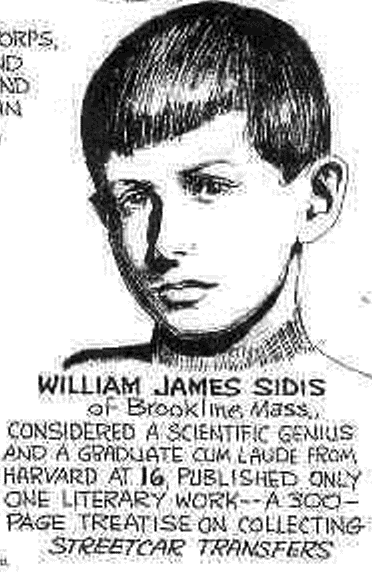Last night I was reading through Carl Payne Tobey's Correspondence Course in Astrology (a favorite of mine) and came across the following:
The neurotic person can often be very convincing, and no one may suspect pathology. This person may gain a big following. He may be very successful. His neurosis may catch on like a song. It may become very popular. He may be very entertaining, and people will go along with almost anything when it is entertaining. Look at the modern news stand. Publishers have long ago learned that if you want to sell magazines, don't try to educate people. Entertain them. That has been a problem for the most sincere editors of astrology magazines sold on news stands. The public is not seeking truth. It is seeking entertainment. There is a phase of pathology involved in that. It is unfortunate that a book called "The Psychology of Suggestion" by Boris Sidis is long out of print, and we can't even locate our own copy which we prized for years. This book gave the best history of mob hysteria we have ever found. Crusades, financial bubbles, religious revivals and various other mass movements have really been of a pathological nature. Some smart people rode the crest of a pathological wave, recognizing it for what it was and making fortunes. Others believed that black was white because it made them temporarily happy. It entertained them and gave them illusions about the future which kept them happy until the bubble burst, untiI they again faced reality. The neurotic always retreats from reality into a world of unreality, and it is quite easy for the mind to accept unreality. The mind is misinterpreting all the time in order to accept reality.
[url=http://mysite.verizon.net/bonniehill/pages.aux/astrology/tobey/tobey.17.html]Correspondence Course in Astrology
by Carl Payne Tobey
Lesson #17
Seeds of Mental Illness[/url]
Searched the web for Boris Sidis and found his books and articles available online.
I've only skimmed the material so far, but thought others may be interested in his work.
[url=http://www.sidis.net/pscontents.htm]THE PSYCHOLOGY OF SUGGESTION
A RESEARCH INTO THE SUBCONSCIOUS NATURE OF MAN AND SOCIETY
Boris Sidis, Ph.D.
© 1898
New York: D. Appleton and Company[/url]
INTRODUCTION
The study of the subconscious is becoming of more and more absorbing interest. The phenomena of hysteria and of hypnosis are now studied by the French psychologists with remarkable acumen and with an unrivalled fertility of ingenious devices, and the results obtained thus far form almost an epoch in the history of psychology. Although the French psychologists work independently of one another and disagree among themselves on many important points, still their method and general line of investigation are pretty nearly the same. They all care for clinical cases more than for minute, detailed laboratory experiments―the present hobby of the Germans―and their chief work falls within the domain of the subconscious. The French psychologists seem to be on the track of a rich gold vein. Without closely formulating their method, they have all, as if by a mutual tacit understanding, chosen the right way that leads to a better and deeper insight into the nature of mind. For the mechanism of consciousness is hidden deep down in the depths of the subconscious, and it is thither we have to descend in order to get a clear understanding of the phenomena that appear in the broad daylight of consciousness.
The German school, with Wundt at its head, at first started out on similar lines, but they could not make any use of the subconscious, and their speculations ran wild in the fancies of Hartmann. The reason of this failure is due to the fact that the concept of the subconscious as conceived by the German school was extremely vague, and had rather the character of a mechanical than that of a psychical process. An unconscious consciousness that was their concept of the subconscious. In such a form as this the subconscious was certainly meaningless―mere nonsense―and had to be given up. The German psychological investigations are now confined to the content of consciousness in so far as the individual is immediately conscious of it. But as this form of consciousness is extremely narrow and circumscribed, the results arrived at, though remarkable for their thoroughness, are after all of a rather trivial nature. It is what Prof. James aptly characterizes "the elaboration of the obvious." We may therefore, with full right, assert that it was the French psychologists who made proper use of the subconscious and arrived at results that are of the utmost importance to psychology, although it were well if the French were to conduct their investigations with German thoroughness.
It is not, however, the French alone who work along the lines of the subconscious, but the English and Americans, too, have a large share in the work. Gourney, James, Myers, and others, have done much toward the elucidation of the obscure phenomena of the subconscious. Psychology is especially indebted to the genius of Myers for his wide and comprehensive study of the phenomena of the subconscious, or of what he calls the manifestations of the subliminal self. The only drawback in Myers's concept of the subliminal self is that he conceives it as a metaphysical entity, as a kind of a cosmic self. Now, while Myers may be right in his belief, the phenomena under investigation do not warrant the hypothesis of metaphysical entities. I have therefore avoided the use of the term "subliminal self," however excellent it might be in itself, in order not to entangle the reader in the metaphysical considerations that cluster round that concept, and also because my point of view of the subconscious widely differs from that of Myers.
The study of subconscious phenomena is of great interest from a purely practical standpoint, because of the use that call be made of it in the state of health and disease. A knowledge of the laws of the subconscious is of momentous import in education, in the reformation of juvenile criminals and offenders, and one can hardly realize the great benefit that suffering humanity will derive from a proper methodical use of the subconscious within the province of therapeutics.
The study of the subconscious is especially of great value to sociology, because nowhere else does the subconscious work on such a grand, stupendous scale as it does in the popular mind; and the sociologist who ignores the subconscious lacks a deep insight into the nature of social forces. For the practical man who takes part in social affairs, in so far as they concern his own interests, the knowledge of the subconscious can hardly be overestimated; and this knowledge becomes an imperative necessity to him who lives in a democracy. The object of this book is the study of the subconscious, normal or abnormal, individual or social, in its relation to suggestion and suggestibility; and let me hope that the thoughtful reader will find my work not only interesting, but stimulating to thought and useful in practical life.
Boris Sidis
_______
INTRODUCTION BY WILLIAM JAMES
I am glad to contribute to this book of Dr. Boris Sidis a few words of introduction, which may possibly gain for it a prompter recognition by the world of readers who are interested in the things of which it treats. Much of the experimental part of the work, although planned entirely by Dr. Sidis, was done in the Harvard Psychological Laboratory, and I have been more or less in his confidence while his theoretic conclusions, based on his later work in the Pathological Institute of the New York State Hospitals, were taking shape.
The meaning of personality, with its limits and its laws, forms a problem which until quite recently had to be discussed almost exclusively by logical and metaphysical methods. Within the past dozen years, however, an immense amount of new empirical material had been injected into the question by the observations which the "recognition" by science of the hypnotic state set in motion. Many of these observations are pathological: fixed ideas, hysteric attacks, insane delusions, mediumistic phenomena, etc. And altogether, although they are far from having solved the problem of personality, they must be admitted to have transformed its outward shape. What are the limits of the consciousness of a human being? Is "self" consciousness only a part of the whole consciousness? Are there many "selves" dissociated from one another? What is the medium of synthesis in a group of associated ideas? How can certain systems of ideas be cut off and forgotten? Is personality a product, and not a principle? Such are the questions now being forced to the front―questions now asked for the first time with some sense of their concrete import, and questions which it will require a great amount of further work, both of observation and of analysis, to answer adequately.
Meanwhile many writers are seeking to fill the gap, and several books have been published seeking to popularize the new observations and ideas and present them in connected form. Dr. Sidis' work distinguishes itself from some of these by its originality, and from others by the width of its scope.
It is divided into three parts: Suggestibility; The Self; Man as One of a Crowd. Under all these heads the author is original. He tries by ingenious experiments to show that the suggestibility of waking persons follows an opposite law to that of hypnotic subjects. Suggestions must be veiled, in the former case, to be effective; in the latter case, the more direct and open they are the better. By other ingenious experiments Dr. Sidis tries to show that the" subliminal" or "ultra-marginal" portions of the mind may in normal persons distinguish objects which the attentive senses find it impossible to name. These latter experiments are incomplete, but they open the way to a highly important psychological investigation.
In Part II, on "The Self," a very full account is given of "double personality," subliminal consciousness, etc. The author is led to adopt as an explanation of the dissociations which lie at the root of all these conditions the physiological theory of retraction of the processes of the brain cells, which in other quarters also seems coming to the front. He makes an elaborate classification of the different degrees of dissociation or amnesia, and, on the basis of a highly interesting and important pathological case, suggests definite methods of diagnosis and cure. This portion of the book well deserves the attention of neurologists.
In Part III the very important matter of "crowd psychology" is discussed, almost for the first time in English. There is probably no more practically important topic to the student of public affairs. Dr. Sidis illustrates it by fresh examples, and his treatment is highly suggestive.
I am not convinced of all of Dr. Sidis' positions, but I can cordially recommend the volume to all classes of readers as a treatise both interesting and instructive, and original in a high degree, on a branch of research whose importance is daily growing greater.
WILLIAM JAMES
HARVARD UNIVERSITY, November 1, 1897
_______
The Boris Sidis Archive
_______
gtg for now.
Enjoy!
~



